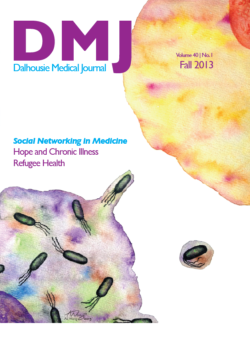Finding a Place for Hope in the Management of Chronic Illness
DOI:
https://doi.org/10.15273/dmj.Vol40No1.3796Abstract
The current concept of hope used by most of the existing literature and within health care is generally futureorientedand curative focused. This pervasive idea of ‘hope for a cure‘, though applicable to many illnesses, does notapply to patients with chronic, progressive, and debilitating diseases. In this paper, I present a detailed descriptionof the hope strategies employed by chronic illness sufferers, and how these differ from traditional ideas of hope.I also describe how hope may be negatively affected during clinical encounters with physicians and our currentsymptom rating tools. Suggestions for moving towards a supportive clinical environment are given, highlighting theimportance of finding hope, and health, within chronic illness.Downloads
Published
2013-11-10
How to Cite
Robichaud, C., & Simpson, C. (2013). Finding a Place for Hope in the Management of Chronic Illness. DALHOUSIE MEDICAL JOURNAL, 40(1). https://doi.org/10.15273/dmj.Vol40No1.3796
Issue
Section
Humanities
License
Authors who publish with this journal agree to the following terms:
- Authors retain copyright and grant the journal right of first publication with the work simultaneously licensed under a Creative Commons Attribution License that allows others to share the work with an acknowledgement of the work's authorship and initial publication in this journal.
- Authors are able to enter into separate, additional contractual arrangements for the non-exclusive distribution of the journal's published version of the work (e.g., post it to an institutional repository or publish it in a book), with an acknowledgement of its initial publication in this journal.
- Authors are permitted and encouraged to post their work online (e.g., in institutional repositories or on their website) prior to and during the submission process, as it can lead to productive exchanges, as well as earlier and greater citation of published work (See The Effect of Open Access).


